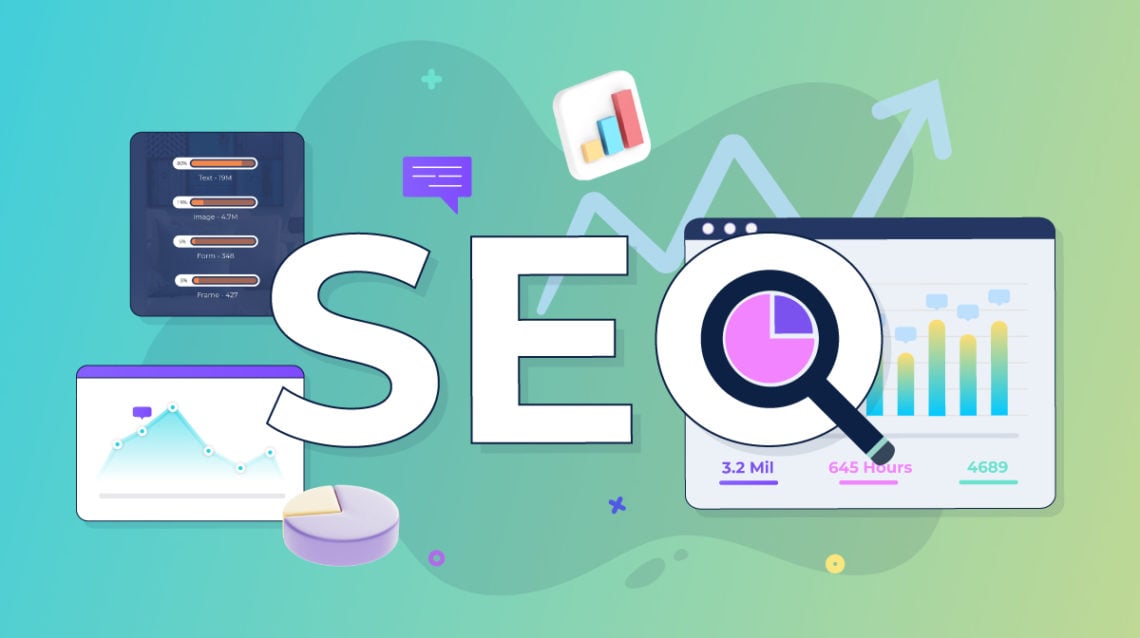
The Importance of SEO-Friendly URLs for Web Development
An SEO-friendly URL is a web address structured and optimized for search engines to understand and rank higher in search results. It should be descriptive, concise, and relevant to the content on the page. The URL should also include keywords that users are likely to search for and be easily readable and understandable for search engines and human visitors. An SEO-friendly URL should avoid using special characters, numbers, and other non-alphabetic characters, as well as being too lengthy or convoluted, as this can negatively affect search engine rankings.
Why is an SEO-Friendly URL important for Web Development?
An SEO-friendly URL is important for web development because it helps improve a website’s search engine rankings, leading to increased organic traffic and better visibility online. A well-structured and optimized URL helps search engines understand what the page is about and its relevance to a user’s search query. It also makes it easier for users to remember and share the URL, which can lead to more incoming links and social signals, further boosting SEO efforts. Ultimately, an SEO-friendly URL is critical to any effective SEO strategy and can help drive more targeted traffic to a website.
The impact of SEO-Friendly URLs on search engine rankings
SEO-friendly URLs can have a significant impact on search engine rankings. When search engines crawl a website, they analyze its content, including the URL structure. URLs optimized with relevant keywords, are concise and descriptive and are easy to understand and remember, are more likely to be ranked higher in search engine results pages (SERPs). Additionally, well-structured URLs make it easier for search engines to crawl and index a website’s pages, which can help to improve overall visibility and ranking. Ultimately, an effective SEO-friendly URL strategy is crucial to any comprehensive SEO campaign.
Best practices for creating SEO-Friendly URLs
There are several best practices to follow when creating SEO-friendly URLs. First, URLs should be descriptive and relevant to the content on the page. They should also include relevant keywords that users are likely to search for. URLs should be short, easy to read, and avoid using special characters, numbers, and other non-alphabetic characters. URLs should also use hyphens to separate words and avoid using underscores or spaces. Additionally, URLs should be organized hierarchically, with clear subdirectories that indicate the page’s location within the website’s structure. Finally, URLs should be permanent and stay the same.
How to structure URLs for optimal SEO results
To structure URLs for optimal SEO results, it’s important to keep them simple, descriptive and organized. Use hyphens to separate words in the URL rather than underscores or spaces. The URL should be relevant to the content on the page and include relevant keywords that users are likely to search for. URLs should also be structured hierarchically, with clear subdirectories that indicate the page’s location within the website’s structure. Finally, the URL should be easy to remember and share, as this can increase its visibility and likelihood of attracting inbound links, which can boost SEO efforts.
Tips for optimizing URL length and readability
Optimizing URL length and readability is important for SEO because shorter, easier-to-read URLs tend to perform better in search engine rankings. To optimize URL length, it’s important to keep them concise and avoid unnecessary words or characters. The URL should be descriptive and include relevant keywords, but not to the point of being overly long. To optimize readability, use hyphens to separate words and avoid using underscores or spaces. Additionally, ensure the URL is easy to read and understand for both search engines and human visitors, as this can help improve user experience and boost SEO efforts.
The role of keywords in SEO-Friendly URLs
Keywords are crucial in creating SEO-friendly URLs because they help search engines understand what a page is about and its relevance to a user’s search query. Including relevant keywords in the URL can help improve a page’s visibility in search engine results pages (SERPs) and attract targeted traffic to the site. However, it’s important to use keywords in a natural and relevant way to the content on the page rather than keyword stuffing. Additionally, the URL should be descriptive and easy to read, with keywords included logically and hierarchically.
How to avoid common URL mistakes that hurt SEO
Several common URL mistakes can hurt SEO services efforts. One of the most significant mistakes is having a URL that is too long or complex, as this can make it difficult for search engines to crawl and index the page. Additionally, using non-alphabetic characters or special characters in the URL, such as underscores or ampersands, can make it harder for search engines to understand the content on the page. Finally, changing URLs frequently can lead to broken links and negatively impact a site’s SEO efforts. Stick to simple, descriptive, and permanent URLs to avoid these mistakes.
The benefits of having a well-organized URL structure
Having a well-organized URL structure offers several benefits for SEO. First, it makes it easier for search engines to crawl and index a website’s pages, which can help to improve visibility and ranking. Second, it can enhance the user experience by creating a clear hierarchy that helps users navigate the site. Third, a well-organized URL structure can improve the site’s internal linking and make sharing and promoting individual pages easier. Finally, it can increase the site’s overall authority and attract more inbound links, boosting SEO efforts. Overall, a well-organized URL structure is critical to any effective SEO strategy.
Tools and resources for optimizing URLs for SEO
There are several tools and resources available for optimizing URLs for SEO services. Google Search Console is a powerful tool that can help web developers monitor and optimize their website’s performance in search engine rankings. Additionally, SEO plugins such as Yoast and All in One SEO Pack can help to optimize URLs and other on-page elements for better visibility and ranking. Other useful resources include Moz’s Keyword Explorer, SEMrush, and Ahrefs, which can help identify relevant keywords, analyze competition, and provide insights for improving SEO efforts. Finally, web developers can consult online SEO guides and forums for tips and best practices for optimizing URLs and other on-page elements.




